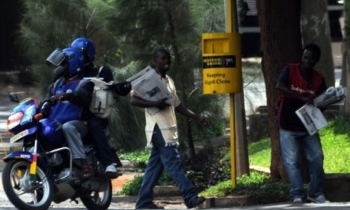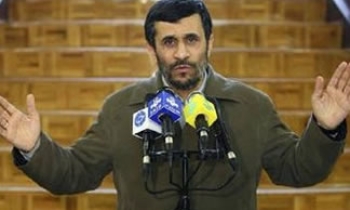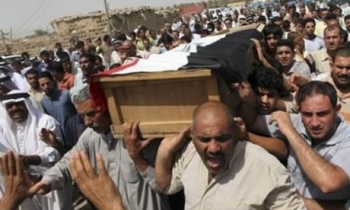Shanghai. July 11. INTERFAX-CHINA - A prominent Chinese newspaper has hit back against claims from Beijing that 'unbalanced reporting' on health issues is undermining the public's confidence in medical services.
In a test of China's commitment to more openness and press freedom, The Southern Metropolitan Daily published a commentary in response to remarks made by the spokesman for the Ministry of Health, (MoH) Mao Qun'an, at a monthly press conference, when asked about an alleged health scandal.
Mao said yesterday, "I hope that media reports will keep this situation in mind. I can't say it's a large proportion, however some media hold this kind of attitude that no matter who has a dispute with a hospital, they always take a position opposing the hospital (blaming the hospital for the mistake)."
The spokesman made his remarks in response to a Chinese journalist who asked if there was any substance to stories in the press regarding compensation disputes between hospitals and unemployed people.
Mao said, "In general, this is a destabilizing behavior. If the media continues to vilify medical institutions, it could strain the hospital-patient relationship and result in people suffering greater harm and expense during the course of their medical treatment."
But the Guangzhou-based paper, which has a record of courting controversy and has seen its editors jailed in the past for publishing material critical of the government, today published a commentary in which it said it was only reflecting the public's well-founded concerns about China's deeply troubled healthcare system.
The paper said Mao's comments raised two questions, firstly, why the media prints unbalanced reports on disputes between hospitals and patients, and secondly, if it was true that the media exaggerated problems in China's hospitals.
In what could be seen as a pre-emptive move to escape government censure, the carefully-worded commentary was quick to concede ground in the debate, acknowledging certain aspects of Mao's remarks. It stated that his words served as a reminder that problems in the health care sector needed to be reported with care. It also acknowledged the existence of unbalanced reporting on health issues in some parts of the media.
But the paper claimed that medical reform was a major concern and something which affected everyone and that a newspaper did not create news, it reported it and was a 'platform to publicize information', and had its own professional ethics to uphold.
The newspaper pointed the finger of blame squarely in the direction of health management and said the uncooperative attitude of many medical establishments towards the media did not help them report matters more clearly.
The publication wrote, "If there's a dispute between hospitals and patients, medical institutions and the health administration are arrogant to media, and due to their habit of shielding information, reporters can't get a clear response - and that's why readers always see responses from medical institutions of 'no comment' or 'the chief refused to be interviewed',"
It went on to say that, although unbalanced reports existed, they were not fault of the media, because health matters were very technical and if adequate comment was not forthcoming from the relevant officials, the full story could not be presented. This meant that there were many stories being printed, from outraged patients who had openly approached newspapers with their complaints, sometimes over very complex matters, but inadequate responses from officials meant the other side of the story could not be reported.
The newspaper said, "To ask the media to stop making medical institutions look bad with its reporting, is to ask the media to neglect the disputes of patients with medical institutions, which is a hot issue in our society.
The Southern Metropolitan Daily concluded its opinion piece by asking medical institutions and the health administration to be open, reveal more material and to make more comment.









